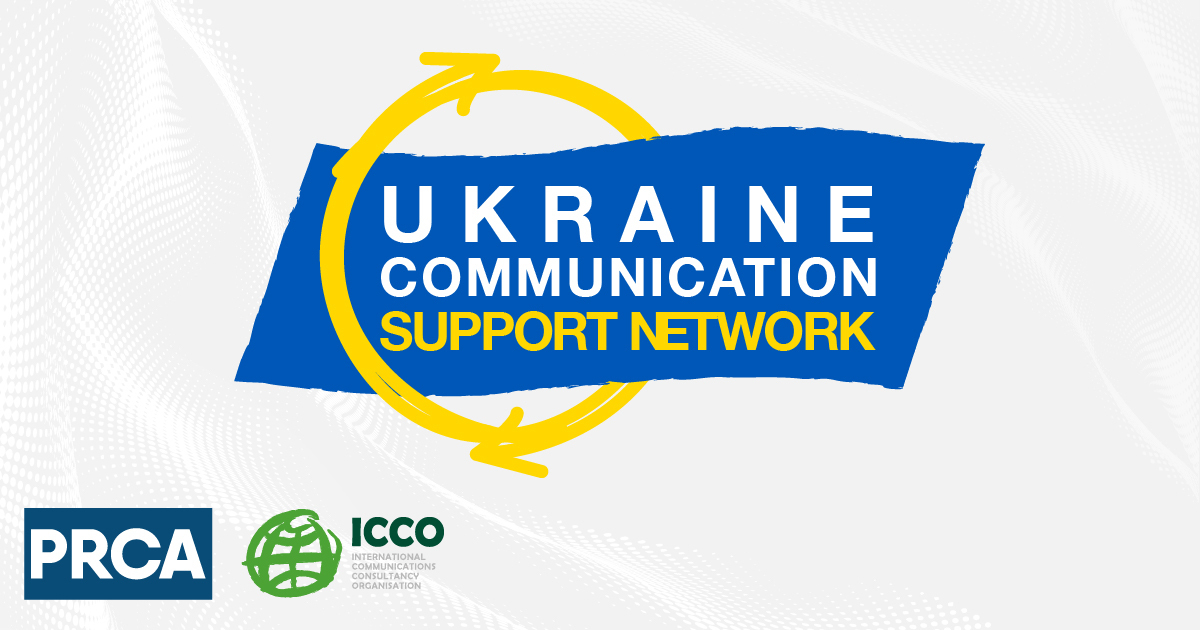The Ukraine Communications Support Network (UCSN) is an international coalition of communications and PR agencies, trade associations and professional advisors, set up in March 2022 to foster collaboration in support of the people of Ukraine in the midst of the Russian invasion.
This guidance memo is the first of what may become a series of advisory documents developed to help PR/communications agencies, lobbying organisations, and other consultants counsel their clients and management teams on matters related to business activity now and in the future in Russia, Belarus, Ukraine and beyond.
‘Business As Usual’ Is A Long Time Off
When Russia invaded Ukraine in February 2022, the international business community was generally quick to mobilize in condemnation of the attack and to cease or curtail activity in Russia or with Russian businesses. Political and economic sanctions against Russia further limited business activity with Russian-owned interests, and public opinion against the war has left business leaders with little or no choice in maintaining a full suspension of business there.
However, as the war grinds on, Ukrainian resilience on and off the battlefield has offered for some hope of a Ukrainian victory or at least a cessation of hostilities, and this could lead to ambiguity in terms of returning to ‘business as usual’ in Russia. ‘Winning’ is of course highly desirable for the people of Ukraine and those around the world who support the rule of law, sovereign integrity and basic human decency, but it will come at enormous cost, even if the victory is complete and clear. The business community will need to think hard and long about whether and when to return to Russia.
In another scenario, hostilities ‘cease’ formally while the real-world situation remains tenuous and volatile, and businesses may be tempted to step back into the Russian market as public attention drifts elsewhere. This is problematic on multiple levels, offering what may be premature relief to the Russian state with no clear pathway for reconstructing Ukraine economically, not to mention compensation for its losses.
In short, conditions for a return to ‘business as usual’ in Russia or Belarus are likely to be hard to identify, premature and with negative outcomes, for the people of Ukraine as well as the stakeholders of the businesses involved.
Recommendations: Six Fundamentals
Advising business in any context is difficult, complicated and subject to rapidly changing circumstances, and the war in Ukraine has both immediate and longer-term complexities; each day adds to the incalculable humanitarian impact in the country and around it, and from the start, debates – some legitimate, some manufactured – have emerged around related issues connected to energy and food security, supply chain continuity, and access to technology, among many others. Now, disruptions to business seem possible in countries not directly involved in the war, but by virtue of simply joining international alliances to preserve their own security.
And of course, every business has its own unique set of stakeholders, commitments and ambitions to be taken into consideration. The recommendations below cannot replace or pre-empt advice to businesses as they assess their future in Russia, but we believe can serve as a set of fundamentals from which to build.
1. Take the long view. Avoid vague markers such as ‘cessation of hostilities’ or ‘restoration of peace’ and precondition any consideration of resuming business or investment in Russia with an internationally recognized and fully settled peace agreement. This may take years. One consideration should be what businesses can or continue to do in terms of divestment to ensure the best preconditions for a lasting peace.
2. Take the wide view. The war illustrates vividly just how interconnected the world is, and the filters through which a business or industry sees its risks or its future may not include important adjacencies. Can any business activity in principle ever be safe in a state that ignores and destroys the rules-based order?
3. Take the Ukrainian view. The damage done to the Russian economy by this war will likely prove to be gigantic and lasting, but it’s indirect and largely superficial. Ukrainian infrastructure, meanwhile, has been utterly devastated. Can business or investment planned for a post-war Russia be redirected to a post-war Ukraine?
4. Take the human view. The human damage already wrought is extraordinary. Many businesses are stepping up with significant and sustained support for humanitarian support in and around Ukraine, and it will be needed for years to come.
5. Act with purpose. Resuming operations or investments in Russia may make initial sense on a spreadsheet. But how does that decision align with your stated purpose, mission, vision and values? Have you actively established that the decision reflects and respects the views of your most important stakeholders – be that customers, employees, suppliers or business partners? And how clear are you on the potential negative impact on your most fundamental relationships as an organisation.
6. Take a leadership position. In most places, business is seen as a source of accountability, stability and leadership, now more than ever. Lead with your values. Communicate with intent.
Additional Resources
Investors And Operations. This statement from the Heartland Initiative, a nonprofit practice-based research organization that promotes the fundamental rights and freedoms of people in conflict-affected and high-risk areas, lays out a comprehensive and useful set of steps for investors and operations management to conduct enhanced due diligence with regard to business in Ukraine, Russia and Belarus.
Human Rights. The UN Guiding Principles on Business and Human Rights are a set of guidelines for States and companies to prevent, address and remedy human rights abuses committed in business operations.
G7 And European Union. This joint statement from the foreign ministers of the G7 and the European Union touches on a number of important points of solidarity related to the war and war-related concerns.
Looking Ahead
The situation in Ukraine changes daily, but the links between the pillars of peace, prosperity and justice endure. As advisors we are committed to helping those we counsel to understand and address stakeholder expectations against all three, even as the pressure for growth mounts. Some of our value rests in shaping what is said, but our far greater contribution is in guiding what is actually done.
Stay In Touch
To keep up to date with UCSN projects, content and future guidance memos, please register for our newsletter, here.


